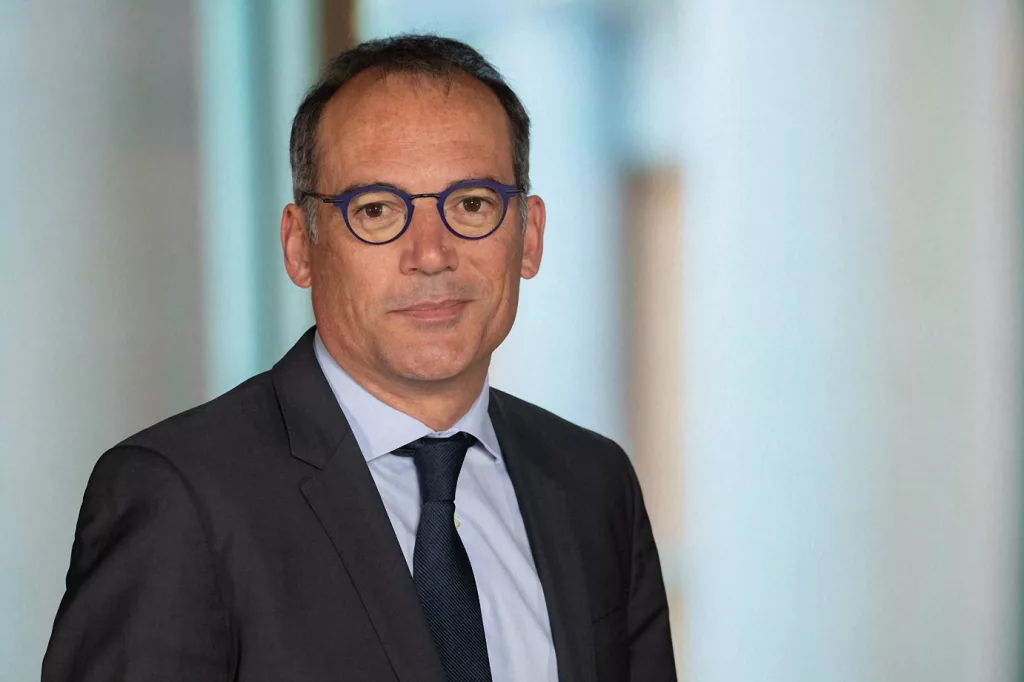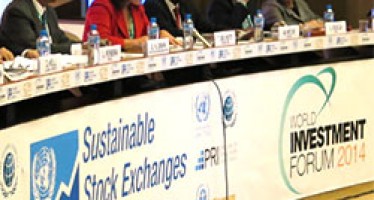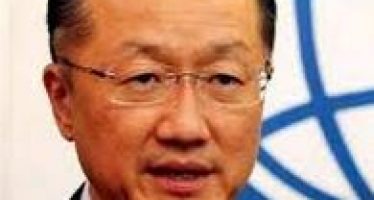IFC’s Alfonso García Mora: On the Frontlines of Climate Change and War
To mitigate the harmful effects of climate change requires the mobilisation of trillions of dollars. IFC Regional Vice-President for Europe, Latin America, and the Caribbean Alfonso García Mora is encouraged by the outcome of COP27 where it was decided – after three decades of discussions – to set up a Loss and Damage Fund: “However, the public purse cannot provide the volume of funding needed. Only the private sector can rally the required levels of funding.”

Regional Vice-President for Europe, Latin America, and the Caribbean: Alfonso García Mora
By 2030, climate related financing needs to deploy up to $3.5tn – or about four to five times the volume available at present: “The money exists and is mostly in the hands of institutional investors. In fact, they hold about a thousand times more funds than those available to development finance institutions. What we need to do is to create the conditions that make projects bankable.”
Mora is convinced that blended finance is key. Part of the World Bank Group, the International Finance Corporation (IFC) is, arguably, the most successful catalyst of private investment. Its seal of approval usually unlocks private capital to the tune of $11 for each dollar the IFC co-finances. “A few years ago, the role and use of multilateral institutions was being questioned but now the realisation has dawned that we need to coordinate our efforts to get the outcomes desired.”
More Than Just Cash
The IFC provides much more than just financing: “Our environmental, social, and governance [ESG] framework is exceptionally strong. Once our borrowers comply with that framework, they also comply with the ESG framework of any other financial institution. This opens a world of possibilities.”
“In Ecuador the IFC recently reached an agreement to subscribe up to $40m in blue bonds out of a total of $79m placed by the Banco Internacional.”
Mora points out that, in a way, the IFC does the due diligence “free of charge” for other investors. This “additionality” can be leveraged to boost the development of the private sector in nearly any market.
The IFC sees a world of opportunity In Latin America where its strategy rests on three pillars: inclusion, sustainability, and productivity. In Chile, the bank helped finance the largest electric bus programme outside China. It also plans to assist local power utility Engie Chile to decarbonise by changing its energy mix and replacing coal-fired power plants with solar and wind generation. Next, the IFC is exploring ways to encourage the production of green ammonia by exploiting the intermittency of renewables.
Though the IFC doesn’t work with country-based targets, it expects to deliver about $1bn in (blended) financing to Chilean businesses and projects over the course of 2023 – a threefold increase over the 2021 volume: “Chile needs to support inclusive growth and sustainability. Moreover, the macro-economic and fiscal situation of the country is better than that of others in the region which means that Chile has the right fundamentals to deal with what is coming and take the necessary actions.”
Agribusiness
Mora would like to see the IFC pick up the pace when it comes to agribusiness: “Our investments in this space have so far been tiny. However, there is an urgent need to improve operational efficiencies and reconfigure wasteful business models particularly as they relate to water use. Water scarcity is real and getting worse with time. Water is going to become a huge issue and may spark conflict.”
The blue economy – defined by the United Nations as the sustainable use of ocean resources for economic growth, improved livelihoods, and jobs – is another area that merits attention: “In Latin America, already 25 percent of the populations lives on the coast. In some Caribbean island nations that is 100 percent.”
In Ecuador the IFC recently reached an agreement to subscribe up to $40m in blue bonds out of a total of $79m placed by the Banco Internacional. The bonds will help the country’s efforts in climate change mitigation and adaptation. The IFC’s participation paved the way for the first private sector blue bond issue in Latin America.
Rebuilding Ukraine
In Europe, the IFC is determined to underwrite the rebuilding of Ukraine’s battered private sector. “. According to UkraineInvest, 86% of private sector companies completely or partially shut down in March while almost all of them resumed work in September. Our support program will leverage blended finance and will prioritize investments to ensure supply of critical goods and services, such as food and fuel, support business preservation and reallocation, and address immediate logistics and energy threats. Right now, we are providing working capital to a few companies but most of the attention of multilateral finance institutions has, understandably, gone to the public sector which suffers a fiscal deficit of between three and four billion dollar every month.”
Mora foresees a “huge role” for the IFC and points out that the Marshall Plan was, in essence, a form of blended finance avant-la-lettre: “We need something similar for Ukraine whereby multilaterals supply seed financing that mobilises the vast volumes of private capital required to get the Ukrainian economy up and running.”
The IFC is set to launch a financing facility to help Ukraine and neighbouring countries redirect supply chains away from Russia. Another programme involves the setting up of a global food security platform – like the bank’s global health platform – to support commodity traders, farmers, food processors, and fertiliser companies.
Strategic Advisor
In December 2022, García Mora announced that the IFC is to serve as the strategic advisor to the Ukrainian government on the creation of optimal conditions to boost private sector investment in reconstruction.
“The war will have a long-lasting macroeconomic and social impact on Ukraine and its people. The financing needs to rebuild Ukraine’s infrastructure and support its economic recovery are immense and keep rising. As one of Ukraine’s largest private sector investors, the IFC is committed to help leverage much needed private capital for Ukraine’s rebuild. We will start working with the Government of Ukraine on strengthening the enabling environment for private investment in infrastructure, as well prioritising and developing projects. This will help mobilise private investors as soon as Ukraine’s conditions allow to start the full-fledged reconstruction.”
In a policy statement on Ukraine, the IFC pledged to support the country’s existing private sector and provide direct support to Ukrainian suffering from Russia’s invasion, including refugees. The institution is determined to prioritise investments that ensure the supply of critical goods and services such as food and fuel and seek to address immediate logistics and energy threats.
You may have an interest in also reading…
World Investment Forum: Seeking Ways to Unlock the Idle Trillions
As the United Nations Conference on Trade and Development (UNCTAD) celebrates its fiftieth anniversary, business and government leaders from across
World Bank Group, FAO Aim to Boost Women’s Land Ownership in Central Europe
Women’s land ownership in the Western Balkans often involves a complex web of statutory, customary, and religious laws. World Bank
World Bank Group President Jim Yong Kim to Visit Saudi Arabia, Lebanon and Jordan
World Bank Group President Jim Yong Kim, will visit Saudi Arabia, Lebanon, and Jordan from June 1-4, to focus on the


















































































